Here’s a crazy fact: If you’re like most of us, you spend roughly 2,000 hours a year with your co-workers. Two-thousand hours! That’s a lot of time.
That’s also an amazing opportunity to share your heart for kids in poverty. And to invite your colleagues along on the life-changing journey of child sponsorship.
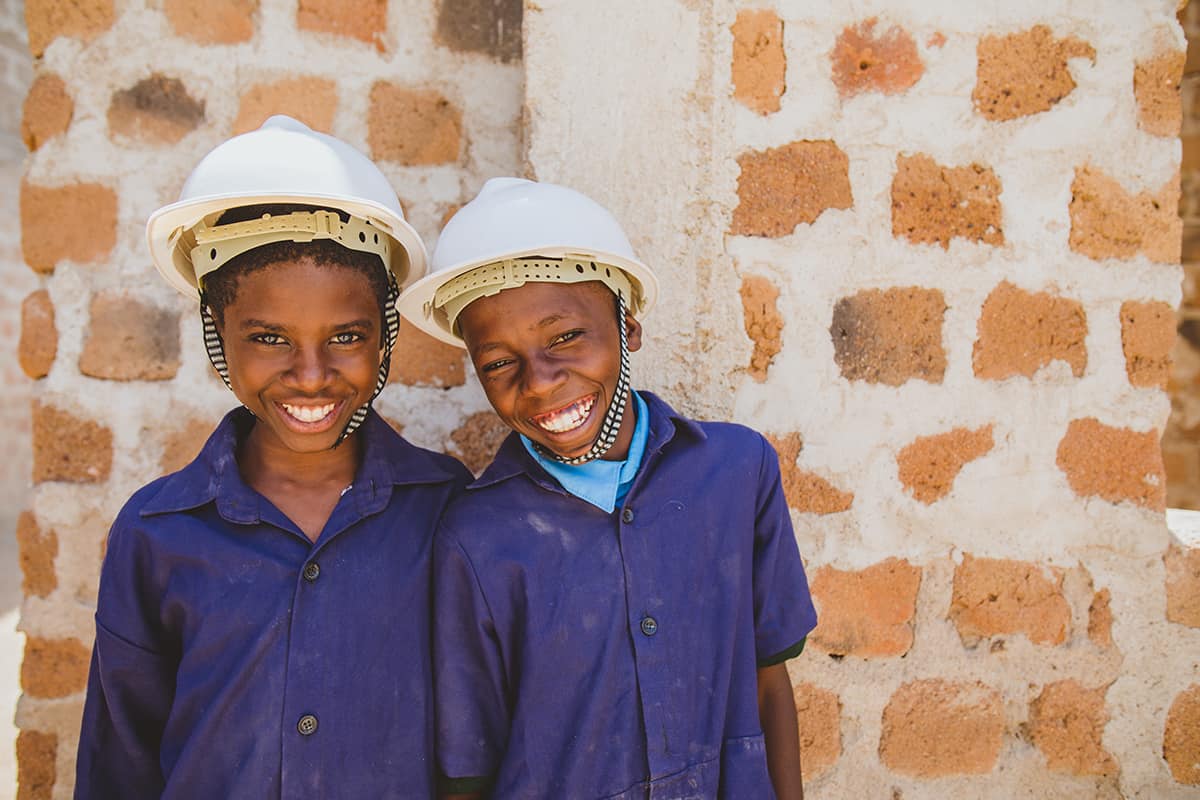
But how do you share things you care about this much with your co-workers?
Is work really the place for that?
I’m about to tell you the story of a woman named Tiffany Aurora. Tiffany took it to a whole other level. She shared about child sponsorship with the staff of our U.S. Department of Defense – at the Pentagon! That’s certainly one way to do it.
You might be thinking, “This next-level Pentagon business is very cool. But isn’t there a simple way for me to share my heart for children in poverty, in my workplace?”
The answer is YES! There are tons of ways you can talk about your passion to see children released from poverty in your own work environment.
Here are four of many easy ways to share your heart for children in poverty at work:
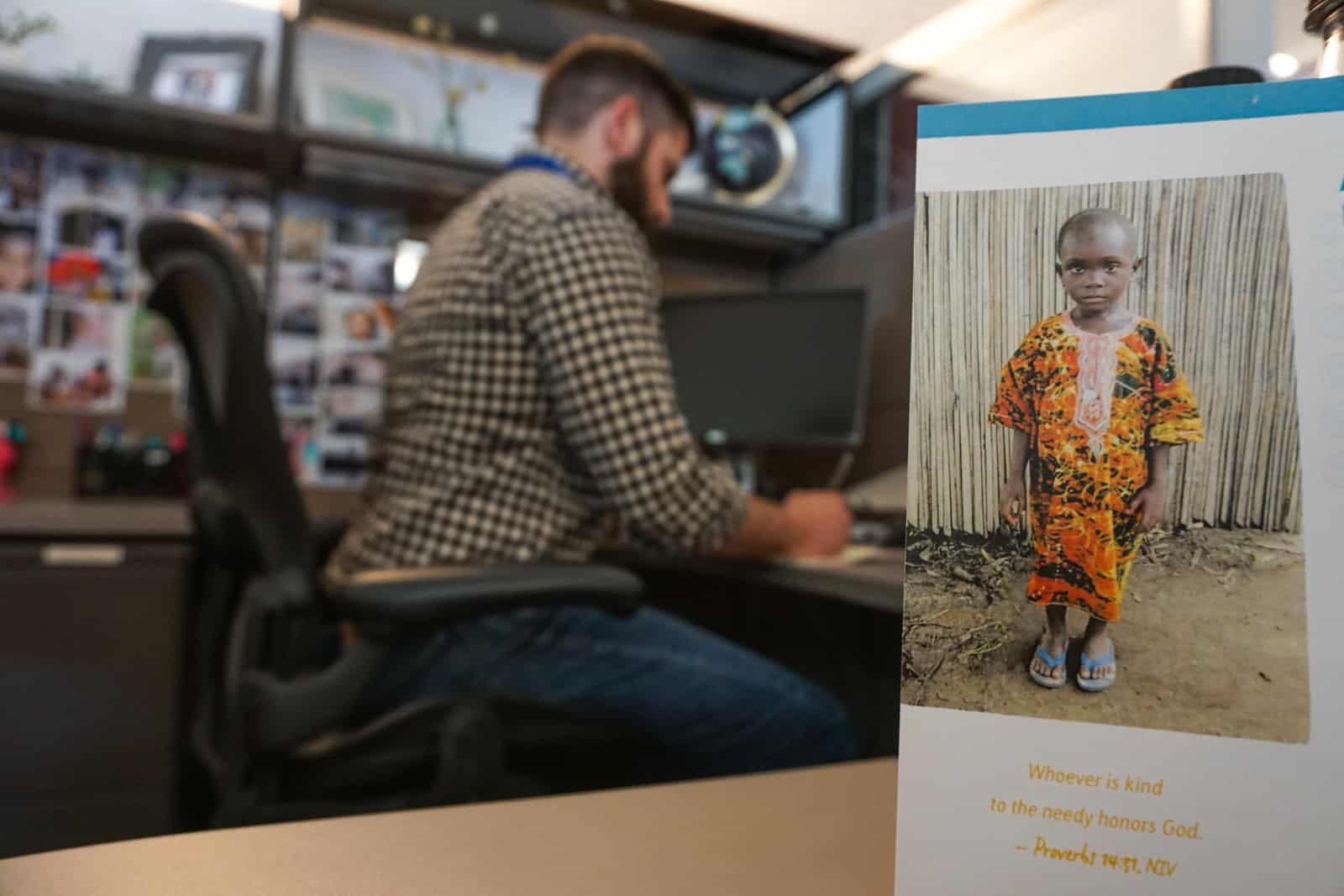
1. Get the conversation going.
This is the easiest place to start. Proudly display a picture of that adorable child you sponsor, right there on your work desk where it can’t be missed. This doubles as a reminder for you to pray for and write to the child, and a catalyst for your co-worker to ask, “Who’s that?”
That one simple question can open the door for you to share your sponsorship story. How it’s changed both your life and that child’s. And how it can change your co-worker’s life too.
Keep these pointers in mind when you do have that conversation:
- Start with your story – that’s what your co-workers care about! Think back to why you first sponsored, and share the joys you’re experienced along the way. Things like exchanging letters back and forth or getting your whole family involved in this special relationship.
- Talk about why you chose to partner with us and the local church in the first place. Maybe about what sponsorship is – a personal connection with one child that transforms the development of his or her mind, heart, body and soul. (Here a few talking points about sponsorship that might help!)
- Be ready to share how your co-worker can sponsor a child today – whether that’s through your Act for Compassion sponsorship page or on www.compassion.com.
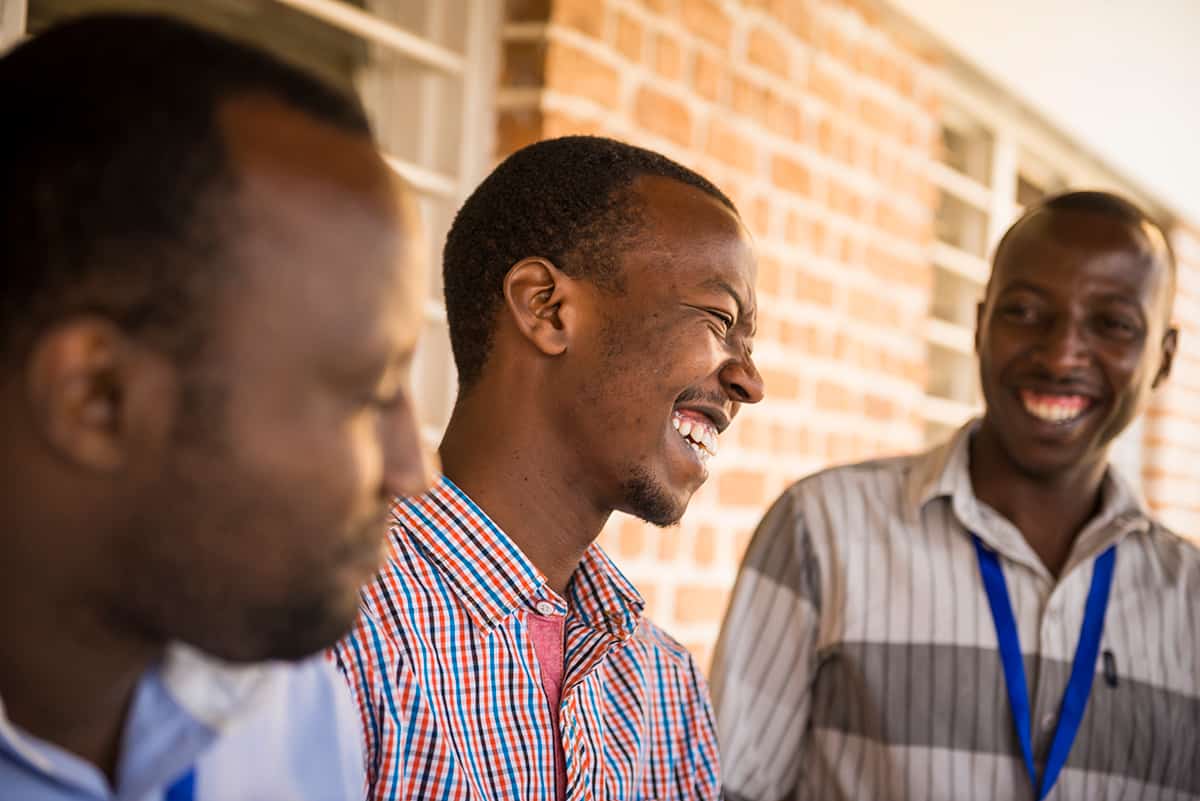
2. Be a friend.
Some of our greatest friendships can develop at work. So don’t underestimate the value of sharing a coffee break or inviting some teammates over for snacks after work. These low-stakes environments can make excellent opportunities for you to get to know your colleagues better.
Ask them about their own passions, the things that drive them most. Always start by listening.
When you genuinely show interest in learning about the desires they have, they’ll want to know the same from you. And your colleagues will appreciate the compassion you have to share even more, because you first showed it to them.
3. Take the lead on that service project.
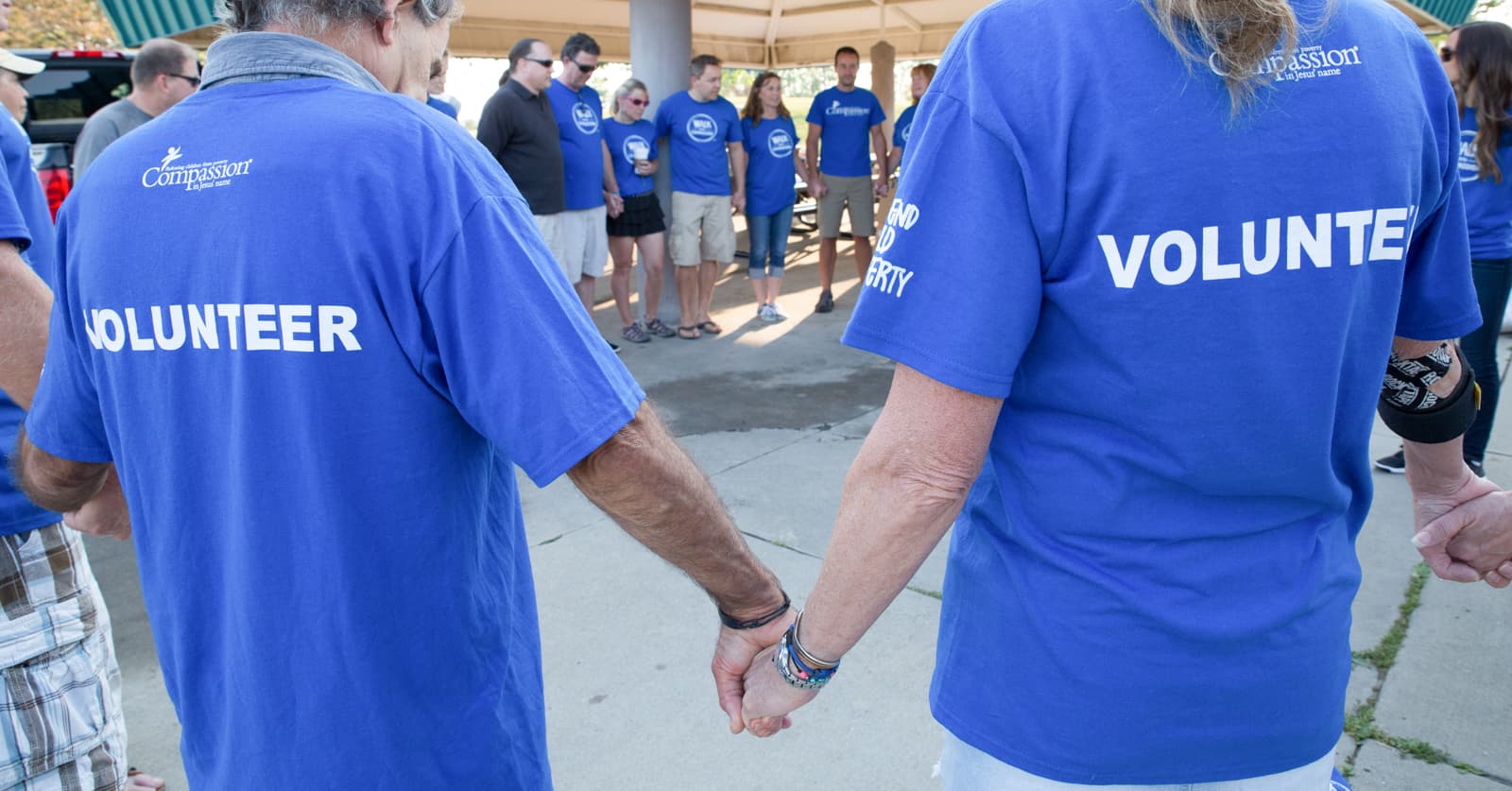
A lot of work groups come together around service projects or volunteer days. This could give you an amazing opportunity to show your love in action and share your support for children in need.
Consider volunteering with your work team at a Compassion-sponsored event or starting a friendly competition to see which group at your office can get the most children sponsored. This is a substantial way to inspire your colleagues to grow, while introducing them to the mission of releasing children from poverty in Jesus’ name.
4. Back to Tiffany …
There’s also the option to do what Tiffany did at the Pentagon – helping government employees impact the lives of children in poverty.
Through workplace giving programs, these staffers have the opportunity to learn about various charities and then decide which one will receive their donation. Tiffany just so happened to volunteer at the Pentagon, but workplace giving events are held all over the nation. Volunteers like you and me can speak to groups of employees, share resources and answer questions people might have about Compassion.
As Tiffany says, “Who doesn’t love sharing their Compassion experience and personal stories to people who might want to get engaged?”
When you and I use our voices in the workplace, we have the potential to raise funds and awareness – and stir the hearts of our fellow workers to change the lives of children through sponsorship.
Let’s be the voices of the voiceless.
When it comes down to it, the workplace is one of the most practical places we can live out our faith. And it’s a prime place you can use your passion and strengths to ultimately release more children from poverty in Jesus’ name.
What about YOU? How do you share your heart for kids while you’re at work?
Explore how you can use YOUR voice for children in poverty.
If you’re interested specifically in volunteering for workplace giving opportunities, like Tiffany, email us at [email protected].
This article was co-written by Rick Schluep and Keri Assante of Compassion USA’s Supporter Mobilization team.
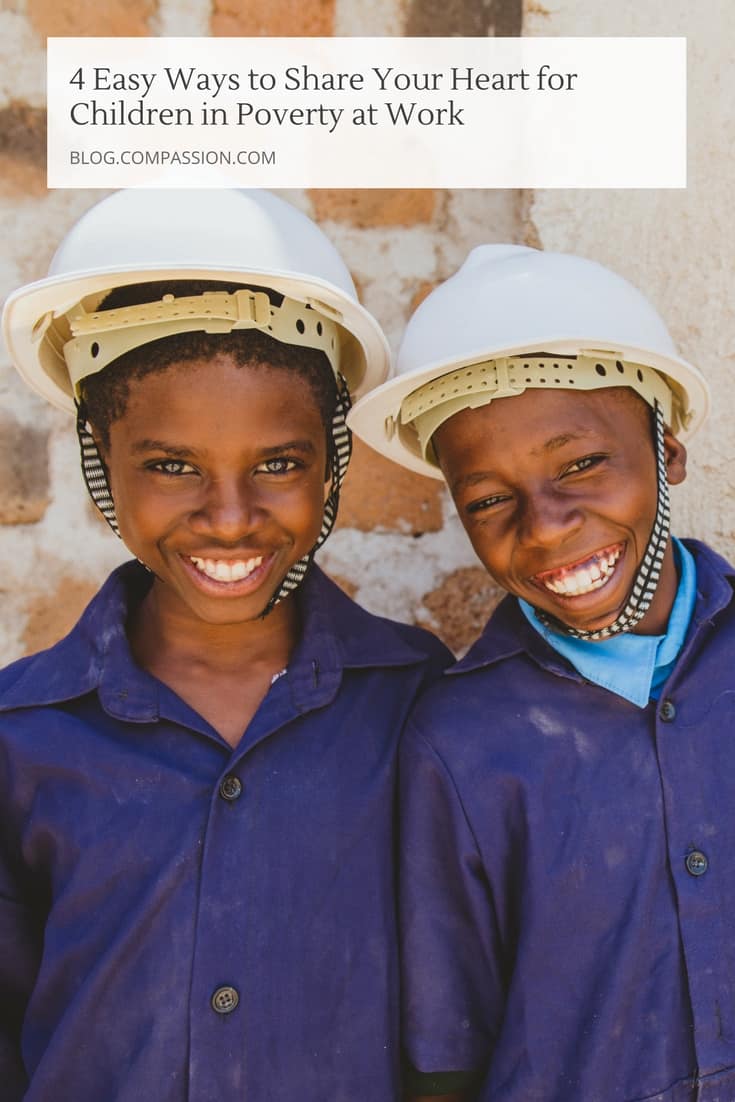






1 Comment |Add a comment
Rick has done an amazing job making it easy to serve at the workplace giving events. I got to help out with 2 of them last fall. Each one is different and the impact adds up!